
| Back To Meditation Home Page |

Custom Search
|
Are we Living in the Last Days...End Times? See Breaking News |
 |
| __________________________ |
 |
________________________ |
| ________________________ |
As You Study the Biblical Last Days in the News... Discover the Bible As Well |
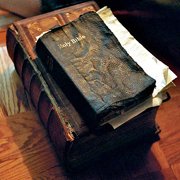 |
| ________________________ |
 |
| ________________________ |
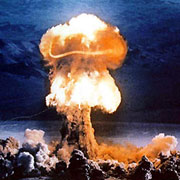 |
| ________________________ |
To Know God's Word Read Scripture |
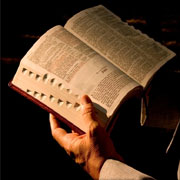 |
_______________________ |
To Read God's Word Your Reading Schedule |
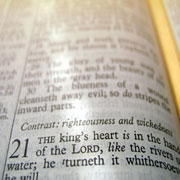 |
_______________________ |
 |
| _________________________ |
Thought Provoking Articles for Your Meditation |
 |
_______________________ |
|
The Departing Scepter at the Coming of Shiloh |
|---|
 |
The Old Testament contains over three hundred references to the Messiah that were fulfilled in Jesus. It has been calculated that the probability of one man fulfilling only eight of these prophesies would be one in ten to the seventeenth power which is 1/100,000,000,000,000,000 or one chance in one hundred quadrillion. The odds of just forty prophecies being fulfilled is one chance in 10 to the one hundred and fifty seventh power. That is 10 followed by 156 zeros. The number of atoms in the universe is calculated to be somewhere around 10 to the eighty-sixth power( 10 followed by on 86 zeroes). It would be far easier to pick out one atom, while blindfolded, in the entire universe, than to have forty prophecies fulfilled in Jesus of Nazareth. The odds of over 300 prophesies being fulfilled is unfathomable to imagine! In the 49th chapter of the book of Genesis there is one specific prophecy regarding the time of the Messiah's coming. In this text, Jacob is well advanced in years and is about to die. Gathering all his sons together he blesses each of them, in different ways, and prophesies over each of them. When he arrives at Judah, his fourth son, he makes a very peculiar prophecy concerning Judah and the Messiah that would someday come.
This amazing prophecy has a few words that need to be defined in order to better understand the implications that are cryptically recounted. The word "scepter" has been understood by the Rabbis to mean the "tribal staff" or "tribal identity" of the twelve tribes of Israel. This "tribal identity" was linked, in the minds of the Jews, to their right to apply and enforce Mosaic law upon the people, including the right to adjudicate capital cases and administer capital punishment. Secondly, it is well documented that the word "Shiloh" has been understood for millennia to be an idiom for the Messiah. Therefore, according to this prophecy, the tribal identity or scepter of the tribe of Judah would not cease until the Messiah came. Judah was not only the name of the son of Jacob, but it was also the name of the southern kingdom of the divided nation of Israel. This prophecy gives specific indicators regarding the time of the coming of the Messiah! The prophecy declares that he would come before the right to impose Jewish law (which includes capital punishment) is restricted and before the national identity of Judah is removed! During the seventy year Babylonian captivity, from 606-537 B.C., the southern kingdom of Israel, Judah, had lost it's national sovereignty, but retained it's tribal staff or national identity. It is very significant that in the book of Ezra it is stated that during the 70-year Babylonian captivity the Jews still retained their own lawgivers or judges. The Jews maintained their identity and judicial authority over their own people even during seventy years of slavery. The scepter had not been lost during the Babylonian captivity. During the next five centuries the Jews suffered under the yoke of the Medo-Persian, Greek and Roman Empires. Yet, Judah retained its tribal identity up until the first quarter of the first century A.D. In the first quarter of the first century A.D., the Jews were under Roman domination when an extraordinary event occurred. According to the historian, Josephus, about the year A.D. 6-7, the son and successor to King Herod, a man named Herod Archelaus, was dethroned and banished. He was replaced, not by a Jewish king, but by a Roman Procurator named Caponius. The legal power of the Sanhedrin was then immediately restricted With the ascension of Caponius, the Sanhedrin lost their ability to adjudicate capital cases. The normal policy toward all the nations under the yoke of the Romans was to remove their power to judge capital cases.immediately. The province of Judea had, however, been spared from this policy up to this point. Caesar Agustus, by this time, had had enough of the Jews and finally removed the judicial authority from them at the ascension of Caponius. Josephus recorded this transfer of power. The power of the Sanhedrin to adjudicate capital cases was now removed. In the minds of the Jewish leadership, this event signified the removal of the scepter or national identity of the tribe of Judah! When the members of the Sanhedrin found themselves deprived of their right over life and death, a general consternation took possession of them; they covered their heads with ashes, and their bodies with sackcloth, exclaiming: Woe unto us, for the scepter has departed from Judah, and the Messiah has not come!' A little more than forty years before the destruction of the Temple in 70 AD, the power of pronouncing capital sentences was taken away from the Jews. |
 |
Later in history, Josephus further points out that the Sanhedrin had no authority over capital cases at all. "After the death of the procurator Festus, when Albinus was about to succeed him, the high priest Ananias considered it a favorable opportunity to assembly the Sanhedrin. He therefore caused James the Brother of Jesus, who was called Christ, and several others, to appear before this hastily assembled council, and pronounced upon them the sentence of death by stoning. All the wise men and strict observers of the law who were at Jerusalem expressed their condemnation of this act...Some even went to Albinus himself , who had departed to Alexandria, to bring this breach of the law under his observation, and to inform him that Ananius had acted illegally in assembling the Sanhedrin without the Roman authority." This remarkable passage not only mentions Jesus of Nazareth and his brother James as historical figures, but it also declares that the Sanhedrin had no authority to pass the death sentence upon any man! The right to impose the death sentence had been removed. The Romans had taken the remaining authority of Judah away in the early years of the first century. The scepter had departed from Judah. Its royal and legal powers were removed; but where was Shiloh? The scepter had been smitten from the hands of the tribe of Judah. The kingdom of Judea, the last remnant of the greatness of Israel, was debased into being merely a part of the province of Syria, and worst of all there was no Messiah in sight. Was GOD not truthful? Would there ever be a Messiah? Some today feel Jesus would have been born before 6 or 7 BC. Most feel he was born in 4 BC. While the Jews wept in the streets of Jerusalem, there was growing up in the city of Nazareth the young son of a Jewish carpenter, Jesus of Nazareth. In 6 or 7 AD He would then have been between 10 and 13 years old. |
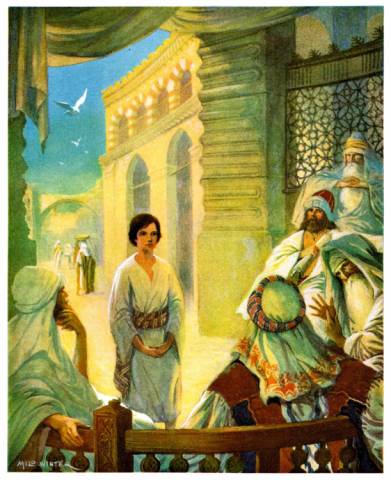 |
Was Archelaus dethroned and replaced by Caponius during the feast of Passover? Was Jesus in the Temple asked and answering questions on the very day that the scepter departed from Judah? Who knows? It is possible.something on which to meditate for certain. But the inescapable conclusion of the matter is that Jacob's prophecy was fulfilled and that Shiloh had come! Only then was the Scepter removed! Be blessed and meditate or meditate and be blessed, the choice is yours! |
Acknowledments: Chuck Missler, Mark Eastman, The Creator Beyond Time and Space Henry Morris, The Genesis Record Apologetics: Rational Evidences for Christ Jesus, http://icthus.info |